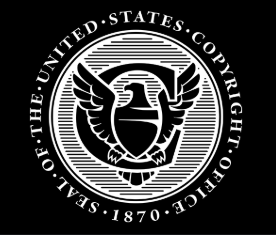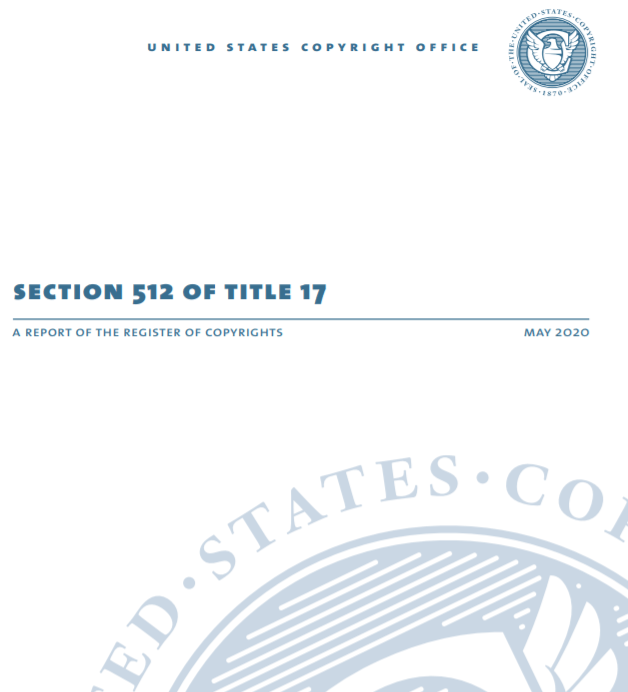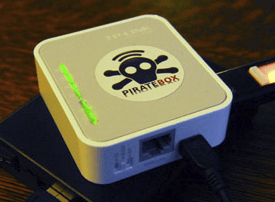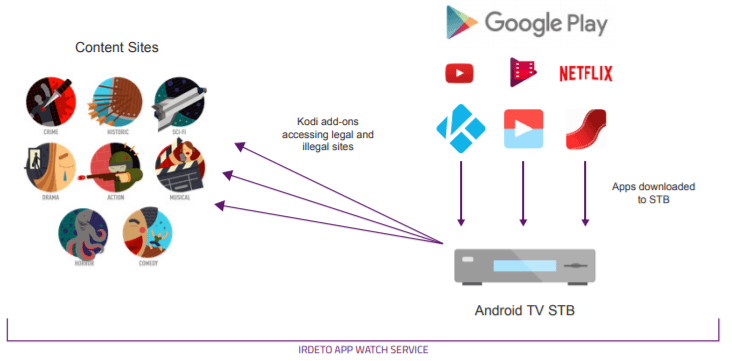 In 2016, the U.S. Government launched a public consultation to evaluate the impact and effectiveness of the DMCA’s Safe Harbor provisions.
In 2016, the U.S. Government launched a public consultation to evaluate the impact and effectiveness of the DMCA’s Safe Harbor provisions.
In response, the Copyright Office received a lot of input, including more than 92,000 comments. Various rightsholders weighed in, as expected, and so did technology companies, law scholars and civil rights groups.
This week, the Copyright Office released its long-awaited report (pdf), summarizing the public input, while offering several recommendations to lawmakers on how to move forward.
The overall conclusion is that there’s a clear discrepancy between how copyright holders and online services view the DMCA. Online service providers (OSPs) are quite pleased with it, while rightsholders see it as outdated and ineffective.
This imbalance comes as no surprise. However, the task of the Copyright Office is to find a way forward. To that end, the report provides some guidance to ‘fine-tune’ a variety of issues but doesn’t propose any broad changes.
“The Office is not recommending any wholesale changes to section 512, instead electing to point out where Congress may wish to fine-tune section 512’s current operation in order to better balance the rights and responsibilities of OSPs and rightsholders in the creative industries.”
This fine-tuning also applies to the ‘repeat infringer’ issue, which has become a hot topic in recent years. Repeat infringers are at the center of several lawsuits between copyright holders and ISPs, which most recently resulted in a billion-dollar damages award against Cox.

The Copyright Office recognizes that there is quite a lot of uncertainty in this area. One problem is the lack of transparency, as ISPs are not required to have a published, or even written repeat infringer policy.
A repeat infringer policy that exists merely in someone’s head is good enough at the moment. This is not ideal, and Congress could address this.
“Given the broad scope of the safe harbors, having a clear, documented, and publicly available repeat infringer policy seems like the appropriate minimum requirement in order to comply with the statute, as well as to act as a deterrent to infringement,” the Office notes.
In addition, it also recommends Congress to provide more clarity on when a user’s account should be terminated. There is currently no clarity on when ISPs should take action and if that requires a takedown notice from a copyright holder.
Another very relevant topic addressed in the report highlights the current restrictions on DMCA subpoenas. At the moment, these suboenas are regularly used to request details of website owners from third-party intermediaries such as Cloudflare or domain name registrars.
These subpoenas are cheap and quick, as they are signed off by a court clerk and don’t require any oversight from a judge. However, they come with restrictions as well, as courts previously concluded that they can’t be used to identify pirating subscribers.
The Copyright Office wonders whether this should change. In mentions that, at the moment, the tool is rarely used, also because the current interpretation doesn’t allow it to be used against regular ISPs to identify pirating subscribers.
“This provision has proven to be little-used by rightsholders, in part because of how restrictively courts have interpreted it and in part because the information gleaned from such subpoenas is often of little use,” the Office notes.
The report recommends Congress to clarify the language of this section. While it understands that some companies might abuse a broader interpretation to extract settlements from file-sharers (i.e. copyright trolls), that shouldn’t hold back lawmakers from considering it.
[“T]he Office does not countenance stripping rightsholders from any realistic ability to enforce their rights, even if doing so may prevent some bad actors from abusing the primary mechanism by which rightsholders may vindicate those rights,” it notes.
The Copyright Office says that it favors “a legislative fix” to address ambiguity in this section of the DMCA to clarify whether this applies to regular ISPs, or not. At the same time, however, the “litigation tactics” of “certain companies” deserve a proper discussion.
“To properly address these concerns, however, the conversation should focus on the actual tactics at issue, rather than using section 512(h) as a proxy to wage those battles,” the report reads.
This is an important recommendation, as making DMCA subpoenas available to identify pirating subscribers will change piracy enforcement drastically. The RIAA tried to use this method over a decade ago and failed. However, if the DMCA language is changed, rightsholders could go after hundreds of thousands of pirates at minimal cost and without judicial oversight.
The report runs to nearly 200 pages and it’s impossible to summarize it all. What is worth mentioning, however, is that the Copyright Office is not sold on two of the top demands from copyright holders. Those are, a ‘notice and staydown’ requirement and ‘site blocking.’
The Copyright Office understands that rightsholders would like a requirement to prevent pirated content from being uploaded, as is also required in the EU by Article 17 of the new Copyright Directive. However, it’s not yet convinced that this is right for the US.
First of all, it would require a “fundamental shift of intermediary liability” in the country. In addition, it is not clear what effect a filtering requirement would have on speech and competition. Those issues would need more research for Congress to consider it at all.
“[I]t is the opinion of the Office that a general staydown requirement and/or mandatory OSP filtering should be adopted, if at all, only after significant additional study, including of the non-copyright implications they would raise,” the report reads.
The same is true for pirate site blocking. While there is some evidence on the effectiveness and implications in other countries, this is not always consistent, and more research is needed.
“While some of these studies report statistically significant reductions in piracy, other studies have shown smaller or no reductions,” the Copyright Office writes.
“Thus, it is difficult to weigh the benefit of such orders against the potential speech impacts, arguing in favor of additional, dedicated study before adopting such a proposal.”
Overall, the report includes some positive and some negative elements for both sides. This was unavoidable, as rightsholders and online service providers have opposing views on how the DMCA safe harbors should function.
The Copyright Office believes that more balance can be achieved by file-tuning the current language. While this sounds mild, the implications for the repeat infringer and DMCA subpoenas could be far-reaching.
That said, the report just provides recommendations. Whether these will be turned into amendments and new legal requirements is up to Congress.
From: TF, for the latest news on copyright battles, piracy and more.

 Spotify is currently the most popular music streaming platform in the world with 286 million users. An impressive 130 million subscribe to the company’s premium service with the remainder using the ad-supported tier.
Spotify is currently the most popular music streaming platform in the world with 286 million users. An impressive 130 million subscribe to the company’s premium service with the remainder using the ad-supported tier.

 Many content providers and networks have their own set-top boxes that can be connected to any modern TV.
Many content providers and networks have their own set-top boxes that can be connected to any modern TV. 



 In 2016, the U.S. Government launched a
In 2016, the U.S. Government launched a 
